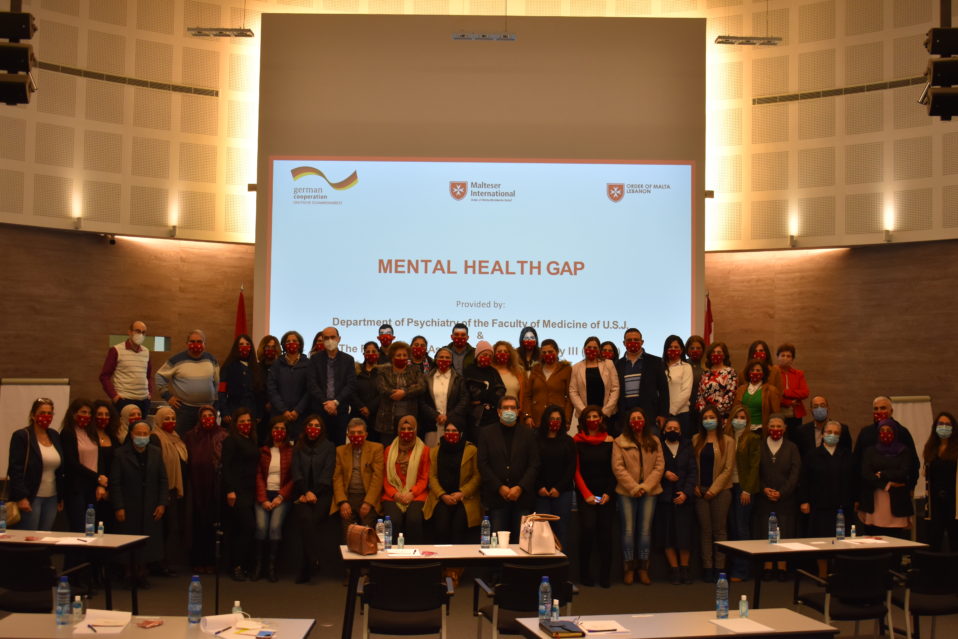The Order of Malta endeavors to provide continuous learning and development to its personnel with the aim of constantly improving the quality of services provided to its patients. As mental health services are an integral part of patients’ health and wellbeing, the organization invested in building its frontliners and key personnel’s capabilities by holding a Mental Health GAP training to equip them with the tool to identify and refer patients suffering from mental disorders.
The training is provided by the department of psychiatry of the faculty of medicine – USJ and the Francophone Association of the Mentally Ill (AFMM), led and presented by Professor Sami Richa, with the support of his team. It will cover throughout 7 sessions key mental health disorders such as mood disorders, psychotic disorders, anxiety disorders, addictions, eating disorders, obsessive-compulsive disorders and traumatic disorders, ethical matters related to mental health care and psychotherapy.
In the first session, Prof. Richa explained how to identify the symptoms of depression and bipolar disorders saying that “17% of the population will suffer from depression at some point in their life, and 50% of patients will relapse”. He also highlighted the importance of recognizing change in behavior and the relevance of seeking the support of a mental health specialist in such circumstances. Due to prevalent stigma and shame surrounding mental health disorders, most patients suffering from those disorders will experience serious symptoms for up to 6 months before being diagnosed”. It is imperative that patients experiencing symptoms that disrupt their ability to function in life, symptoms such as sadness, tiredness, decrease of concentration, strong agitation, impulse control issues amongst other, for a period exceeding 2 weeks, consult a mental health specialist and be treated”.
“90% of people who have committed suicide suffer from a mental disorder” added Prof. Richa. It is the second cause of death worldwide amongst the age group 15 to 35 years of age and there is an attempt to suicide every 40 seconds in the world. He shed the light on several misconceptions related to suicide explaining that it can target all age groups, that a person voicing out the plan for suicide will most probably actually plan it and try to execute it; finally emphasizing on the importance of prevention and intervention.
The second session was held today as a webinar due to the Covid-19 lockdown and tackled psychotic disorders such as psychosis, schizophrenia, and delusional disorders.
In the course of the coming sessions, the remaining mental disorders will be gradually tackled, to equip our personnel with the means to intervene and support efficiently patients in need.
This training is funded by the German Federal Ministry for Economic Cooperation and Development (BMZ) in partnership with Malteser International.
Scaling up services for mental health with the MHGAP training sessions





